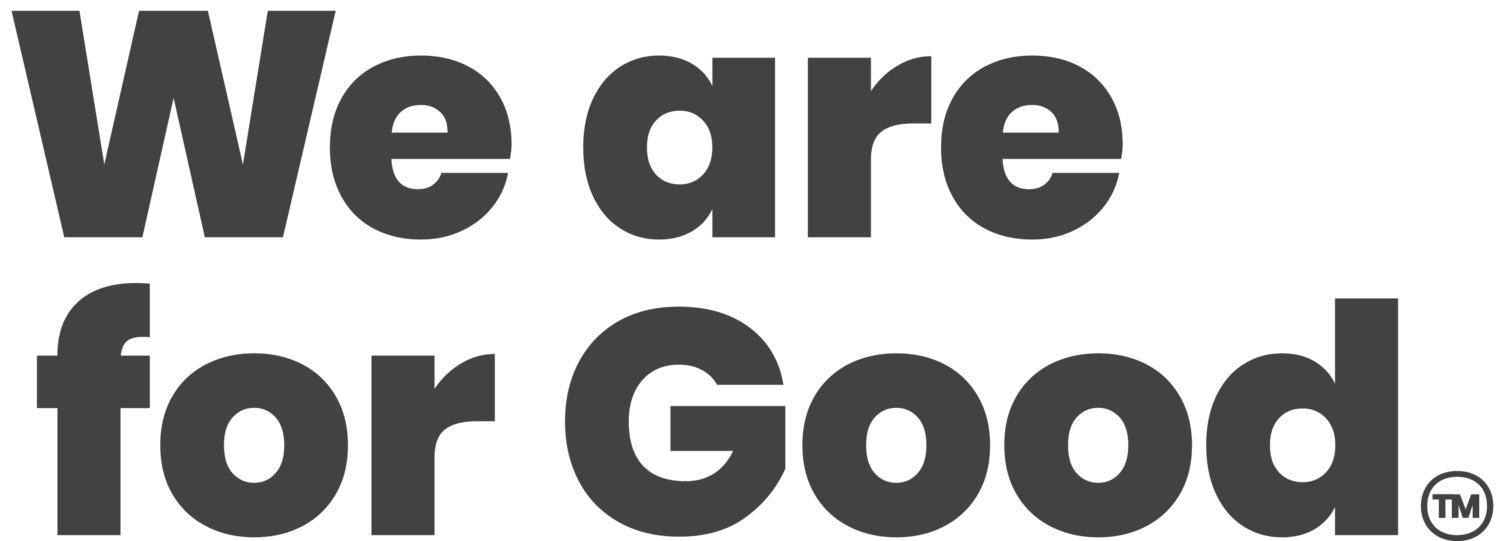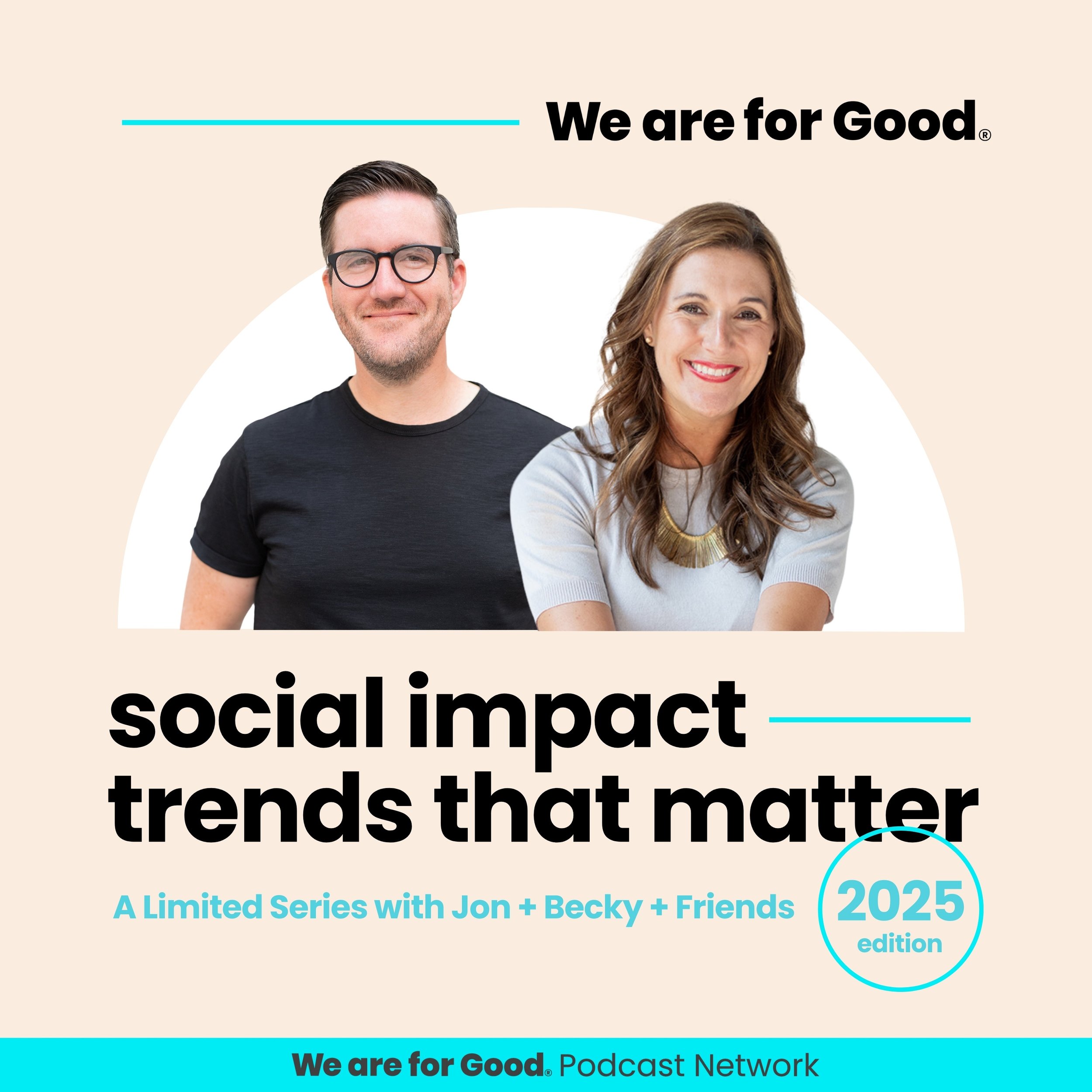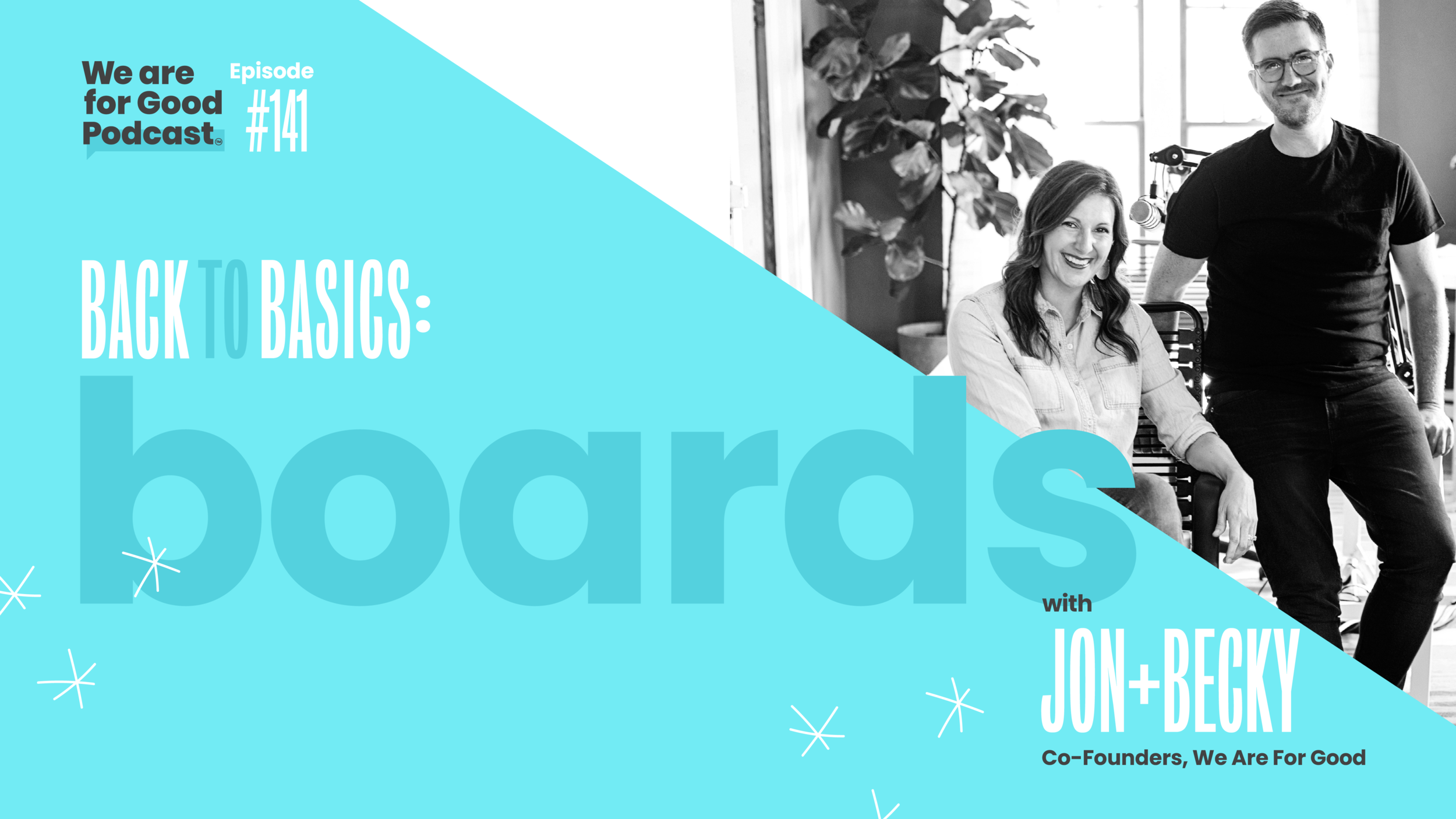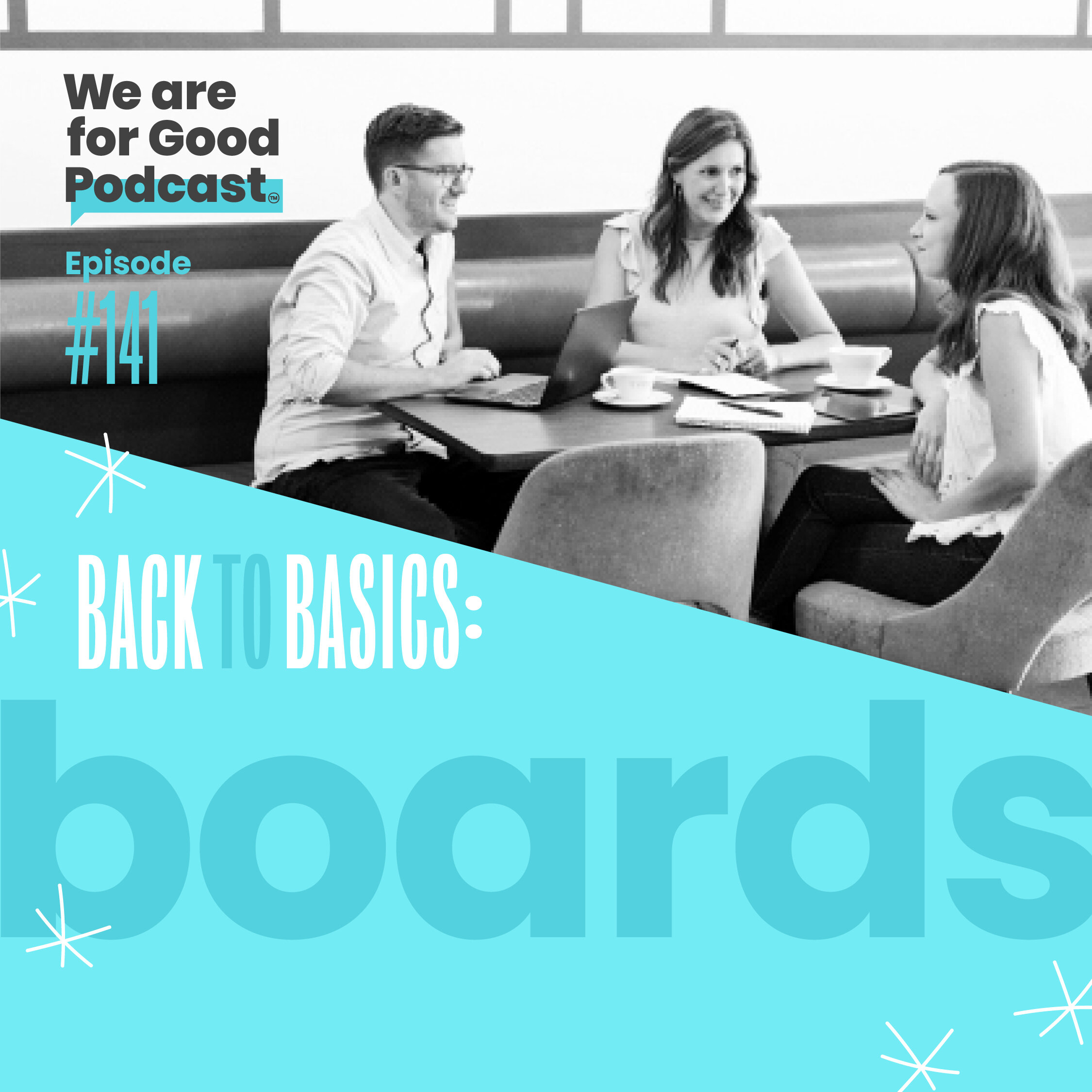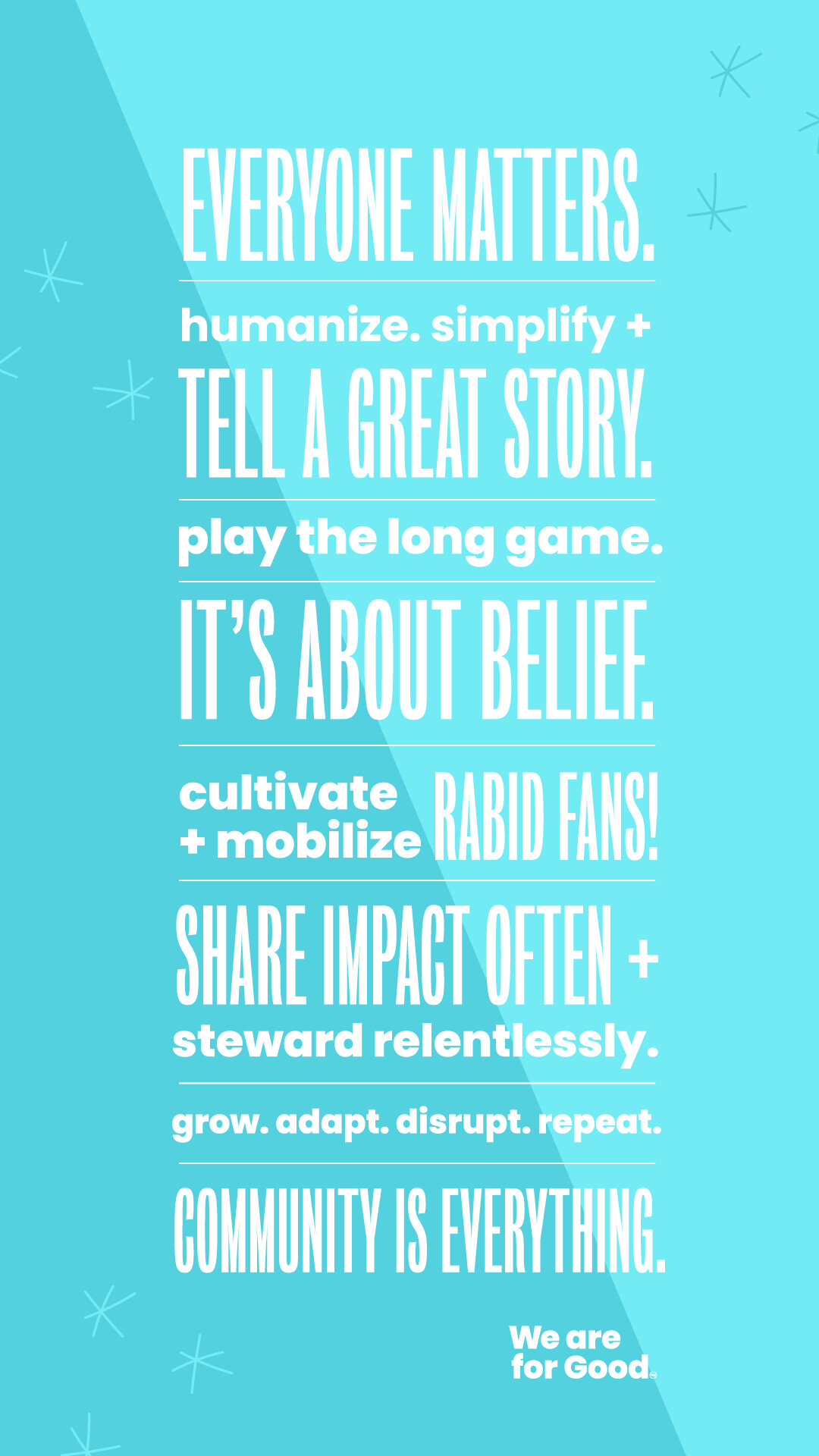141. Back to the Basics: Boards - Jonathan McCoy, CFRE and Becky Endicott, CFRE
Listen to this episode
Overview
We all love our boards. But are we really leveraging them to their full potential? They just might be the volunteers closest to your mission, and knowing how to engage them (rather than simply talk at them) possesses the key to unpacking next level connections but also cultivating them toward their gift in the process. Join Jon + Becky as dive into Back to Basics: Boards. We're talking through basic board responsibilities, board mapping and common governance mistakes.
“There is an air of intimidation around boards. You realize these are people who are deeply passionate about your cause. They are such great allies, and it is crucial that you get to know them on a deeper level.”
Episode Transcript
Download Full Episode Transcript Here
Episode Overview
Advisory boards vs. working boards (2:20)
DEI lens on boards (5:45)
The current state of boards in our industry (7:40)
Back to the Basics: responsibilities of your boards (10:30)
Key tips to help you take your board engagement to the next level (18:00)
Assessing the diversity of your current board (22:00)
The top 15 non-profit board governance mistakes (by CharityLawyer, Ellis Carter) (23:50)
FREEBIE: Complete Guide to Board Meeting Agendas (26:30)
Powerful quotes
“Boards are one of the most underutilized areas of our sector.” -Becky
“We’re talking about activating our boards. If you have these people who are value aligned with your mission, it is time to lean into them and use them to their full potential.” -Jon
“There is an air of intimidation around boards. You realize these are people who are deeply passionate about your cause. They are such great allies, and it is crucial that you get to know them on a deeper level.” -Jon
“Board members want to be engaged at a deep level. Our boards are hungry and waiting for us to come to them to activate them for good.” -Becky
“Dream bigger for what your boards can do.” -Jon
Components of a Working Board
1. They need an incredibly clear plan.
2. Your recruitment needs to be forthcoming about how you want to use them.
3. Onboard them incredibly well.
4. Introduce your board to your staff and the important people in your organization.
The Basic Responsibilities of Your Board (Board Source)
Determine mission and purpose.
Select the chief executive.
Support and evaluate the chief executive.
Ensure effective planning
Monitor and strengthen programs and services.
Protect assets and provide proper financial oversight.
Build a competent board.
Ensure legal and ethical integrity.
Enhance the organization’s public standing.
Key tips to help Take Your Board to the Next Level
Build an engagement and communication calendar for the year
Weekly stewardship ask - write an email, make a call, send a thank you note, etc.
Monthly or quarterly board-specific communication (include a story and cause-related articles educating them about your mission/industry!)
Share organization thank you notes, staff accomplishments or other team-related wins with board, so they’re able to pour into the good news and good people. This can be done via email, in-person or in a board packet.
Include prospecting as a portion of every board meeting.
Whenever possible, bring board member on call/solicitation. Allows you to steward both the prospect and board members afterward.
Sit down with each board member socially and hear their story of connection to the org, background on their business and family, and understand their passion for your cause.
Remember their birthdays or special events, and add those to your calendar to send a quick email or text.
“Our boards are not engaged, because we are not doing a good job at engaging them.”
6 STEPS TO BUILDING A MORE ENGAGED BOARD (From our conversation with Christal Cherry)
Know who your board members are
Don’t overlook the onboarding process
provide job description, outline time/giving obligations, etc.
Include board members in your work, and make it easy for them to engage
Thank them profusely
Circle back and celebrate impact through story
Include term limits
Questions to ask yourself as you evaluate your current board
Who is on your board?
Do you have women?
Do you have diversity on your board?
Is there someone on your board that can personally speak into your mission?
What are your needs as an organization? Are they being met by your current board?
Who has been on the board for an extended period of time?
The Top 15 Non-profit Board Governance Mistakes - by CharityLawyer (Ellis Carter)
1. Failing to Understand Fiduciary Duties.
2. Failing to Provide Effective Oversight.
3. Deference to the Executive Committee, Board Chair or the Organization’s Founder.
4. Micro-managing Staff.
5. Avoiding The Hard Questions.
6. Insufficient Conflict Management.
7. Lack of Awareness of Laws Governing Tax-Exempts.
8. Operating with Outdated, Inconsistent Governing Documents.
9. Airing Disagreements Outside the Boardroom.
10. Failure to Cultivate Board Diversity.
11. Recruiting and Selecting Board Members Without Due Care.
12. Failing to Educate and Motivate Board Members.
13. Failing to Document Actions Appropriately.
14. Failing to Review Program Effectiveness and Efficiency and Take Appropriate Follow-Up Actions.
15. Failing to Hold Executives (and Nonparticipating Directors) Accountable.
boards podcast playlist
13. Nonprofit Boards: Who's at the Top Matters - Christal M. Cherry
63. Real Talk: How to Recruit + Empower a Diverse Team - Kishshana Palmer
57. A Woman's Quest to Bring Inclusivity to the Boardroom and Third World Alike - Ingrid Gonzalez
